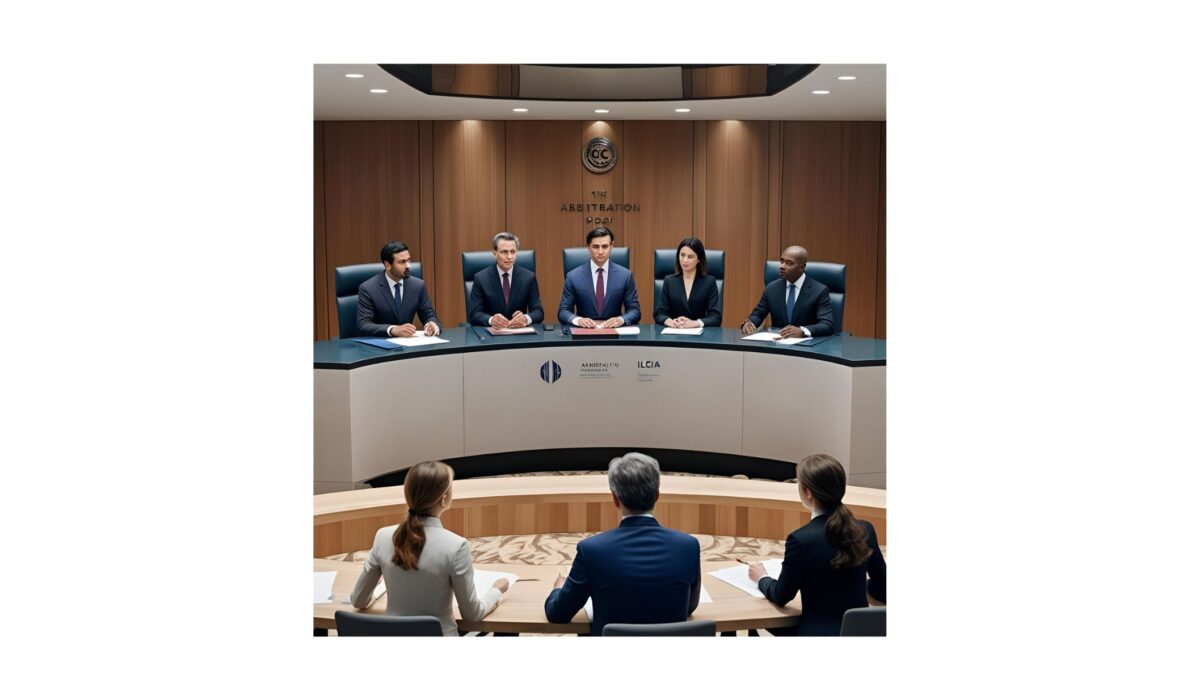Guardianship and Adoption under Pakistani Law: A Complete and Authoritative Guide And Sample, Specimen of Guardian Petition / Custody Petition
Guardianship and Adoption under Pakistani Law: A Complete and Authoritative Guide And Sample, Specimen of Guardian Petition / Custody Petition
1. Introduction
Pakistan’s legal framework for caring for orphans, abandoned, or vulnerable children centers on guardianship, not adoption as commonly understood in Western jurisdictions.
This distinction arises from both Islamic injunctions and constitutional imperatives. Adoption in the Western sense — where an adopted child is given full legal status equivalent to a biological child — is not recognized under Pakistani law because it is inconsistent with Islamic principles emphasizing the immutability of lineage (Nasab).
Thus, the Guardians and Wards Act, 1890 serves as the primary legislative framework, ensuring that minors receive necessary protection through court-appointed guardians, while preserving their biological identities and inheritance rights under Islamic law.
This comprehensive guide analyzes:
-
Statutory framework,
-
Constitutional basis,
-
Islamic law principles,
-
Key procedural rules,
-
Provincial variations,
-
Practical challenges,
-
International law implications,
-
Comparative perspectives,
-
Policy recommendations.
2. The Concept of Guardianship and Adoption: Islamic and Pakistani Perspectives
2.1 Guardianship (Wilayah and Kafalah)
In Islamic law:
-
Wilayah refers to the authority of a guardian over a minor’s person or property.
-
Kafalah refers to the voluntary assumption of a child’s care without severing lineage.
Pakistan, being an Islamic Republic, largely reflects these principles:
-
Guardianship ensures protection, education, and maintenance of the minor.
-
It does not create a new filiation between the guardian and the minor.
-
Lineage (Nasab) remains legally and socially intact.
2.2 Adoption
The concept of “adoption” (Tabanni) — where a child is treated exactly as a biological child including rights of inheritance — is prohibited in Islam, as per Quranic injunctions:
“…nor has He made your adopted sons your (real) sons.”
(Surah Al-Ahzab, 33:4)
Hence:
-
A child under guardianship cannot assume the surname of the guardian.
-
Biological relationships, especially for marriage and inheritance purposes, must be maintained.
-
Guardianship ensures welfare without creating fictitious familial relationships.
3. Constitutional Framework
Pakistan’s constitutional system supports the protection of minors and emphasizes Islamic injunctions:
| Provision | Content |
|---|---|
| Article 35 | Protection of family, mother, and child is a duty of the State. |
| Article 227 | All laws must conform to Islamic injunctions. |
| Article 25(3) | Special protection can be given to children. |
| Article 9 | Right to life includes a right to dignity, education, and protection. |
Thus, any law or policy must harmonize:
-
The welfare of children, and
-
Islamic principles.
4. Core Legislation
4.1 Guardians and Wards Act, 1890
-
Section 7: Application for appointment of guardian.
-
Section 17: Welfare of minor to be paramount consideration.
-
Section 19: Appointment not necessary if father is fit guardian.
-
Section 25: Right of guardian to custody of ward.
-
Section 39: Removal of guardian.
-
Section 41: Cessation of guardianship upon minor attaining majority.
4.2 Muslim Family Laws Ordinance, 1961
-
Indirectly impacts guardianship by recognizing rights relating to family maintenance and marriage.
4.3 West Pakistan Family Courts Act, 1964
-
Empowers Family Courts with jurisdiction over guardianship and custody disputes.
4.4 Provincial Child Protection Laws
-
Punjab Destitute and Neglected Children Act, 2004
-
Sindh Child Protection Authority Act, 2011
-
Khyber Pakhtunkhwa Child Protection and Welfare Act, 2010
-
Balochistan Child Protection Act, 2016
Each province regulates institutional care and temporary guardianship differently.
5. Procedure for Appointment of Guardian in Pakistan
5.1 Eligibility
-
Pakistani citizen (preferable).
-
Of good character.
-
Financially stable.
-
Physically and mentally fit.
-
Ideally a Muslim if the minor is Muslim.
Note: Non-Muslims may be appointed guardians of Muslim minors only under extraordinary circumstances.
5.2 Filing the Petition
-
Filed under Section 7 of the Act.
-
Filed in the Family Court or Guardian Court where the minor resides.
5.3 Contents of Petition
-
Minor’s details (name, age, religion).
-
Relationship with applicant.
-
Reasons for seeking guardianship.
-
Proof of applicant’s capacity and stability.
5.4 Court Inquiry
-
Welfare of the minor is paramount.
-
Investigation through:
-
Court officials,
-
Social Welfare Department,
-
Police verification.
-
5.5 Guardianship Certificate
-
Issued upon satisfaction.
-
Enables guardian to perform legal functions: passport applications, school admissions, medical consents, etc.
6. Inheritance Rights of a Guardianship Child
-
Guardianship does not create automatic inheritance rights.
-
The guardian must make a Wasiyyah (will) to bequeath up to one-third of their property to the minor.
-
Without a will, the minor inherits from biological parents only.
7. Removal of Guardian
Under Section 39 of the Act, a guardian can be removed if:
-
Misconduct is proven.
-
Financial mismanagement occurs.
-
Minor’s welfare is jeopardized.
-
Conflict of interest arises.
The Court may appoint a replacement guardian if necessary.
8. Prominent Case Law in Pakistan
| Case | Principle Established |
|---|---|
| Abdul Rehman v. Zubaida Khatoon (PLD 1956 Karachi 593) | Welfare of minor outweighs strict legal rights. |
| Mst. Farhat Jabeen v. Muhammad Safdar (PLD 1997 Lahore 301) | Mother’s custody preferred unless welfare dictates otherwise. |
| Mst. Tanveer v. Muhammad Anwar (2012 SCMR 480) | Guardian must be capable of protecting religious and moral interests. |
| Dr. Shazia Maqsood v. Faisal Rasheed (2022 YLR 1700 Islamabad) | Best interest includes emotional, psychological, and financial stability. |
9. Role of Institutions in Guardianship
Prominent institutions:
-
Edhi Foundation: Facilitates guardianship under strict court supervision.
-
SOS Children’s Villages: Provides care but requires guardianship orders for permanent placement.
Institutions must:
-
Seek court authorization before placing minors.
-
Report placements to Child Protection Bureaus.
10. International Law Context
-
UN Convention on the Rights of the Child (CRC):
-
Ratified by Pakistan in 1990.
-
Emphasizes the minor’s best interest principle.
-
-
Hague Convention on Intercountry Adoption:
-
Pakistan is not a party.
-
International adoptions are treated as guardianships, not adoptions.
-
**Foreign guardians must return to court for:
-
Periodic reporting,
-
Status updates.**
11. Practical Challenges and Reforms Needed
11.1 Challenges
-
Social stigma around guardianship.
-
Bureaucratic delays.
-
Lack of uniformity across provinces.
-
Abuse in the name of “private adoptions.”
11.2 Needed Reforms
-
National child guardianship database.
-
Strict verification for all private guardianship arrangements.
-
Public awareness campaigns promoting guardianship.
-
Alignment of provincial child protection laws.
12. Comparative Law Perspective
| Country | Adoption System | Applicability to Pakistan |
|---|---|---|
| Saudi Arabia | Kafalah-based guardianship, adoption prohibited | Similar to Pakistan. |
| United States | Full adoption severing biological ties | Not permissible in Pakistan. |
| United Kingdom | Both adoption and guardianship recognized | Only guardianship relevant for Pakistan. |
13. Important Doctrines Applied by Courts
-
Welfare of the Child Doctrine (Salus Populi Suprema Lex).
-
Best Interest Principle (CRC-based).
-
Continuity of Care Principle (stability is prioritized).
-
Religious Compatibility Principle.
14. Conclusion
Pakistan’s approach to the care and protection of minors is rooted in the Islamic principle of Kafalah (guardianship), not adoption as recognized elsewhere.
The Guardians and Wards Act, 1890, and related family laws ensure that a child receives security, protection, and care while preserving biological lineage and inheritance structures mandated by Islamic Sharia.
Strict court supervision ensures that the minor’s welfare remains paramount.
Reforms are needed to modernize guardianship processes without compromising Islamic principles.
Through legally structured guardianship, Pakistan fulfills both its religious duties and constitutional obligations to vulnerable children — offering them a better, dignified future.
Sample Petition for Appointment of Guardian
(Under Section 7 of the Guardians and Wards Act, 1890)
IN THE COURT OF THE HONORABLE JUDGE FAMILY COURT/GUARDIAN COURT, ISLAMABAD (EAST/WEST) / [City Name]
Guardianship Petition No._/20
In the Matter of:
Minor: [Minor’s Full Name]
S/o or D/o [Biological Father’s Name]
PETITIONER:
[Your Full Name]
Son/Daughter of [Father’s Name]
CNIC No: [xxxxxxxxxxxx]
Resident of [Full Address]
VERSUS
RESPONDENTS:
-
[Name of Biological Parent/Relative if known, or State “NIL” if not applicable]
-
Any other person claiming guardianship
(If no respondent, may mention “NIL”)
PETITION UNDER SECTION 7 READ WITH SECTION 10 OF THE GUARDIANS AND WARDS ACT, 1890 FOR APPOINTMENT OF GUARDIAN OF PERSON (AND PROPERTY, IF APPLICABLE) OF THE MINOR
RESPECTFULLY SHEWETH:
-
That the Petitioner is an adult Pakistani citizen, competent, financially stable, and capable of taking care of the welfare, upbringing, education, health, and general well-being of the minor mentioned above.
-
That the minor [Minor’s Name], aged about ___ years, is currently residing at [Address] under the temporary care and custody of the Petitioner.
-
That the biological parents of the minor are:
-
Father: [Name, or state if deceased/unknown]
-
Mother: [Name, or state if deceased/unknown]
(Modify if both parents are deceased, missing, or incapable of care.)
-
-
That there exists no existing, valid, or subsisting order appointing any guardian for the minor’s person and/or property under any law.
-
That in view of the circumstances and keeping in mind the welfare of the minor, the Petitioner respectfully seeks appointment as the legal guardian of the person (and property, if applicable) of the said minor.
-
That the Petitioner fulfills all legal, moral, financial, and social obligations required to act as the lawful guardian of the minor and undertakes to discharge all responsibilities in accordance with law.
-
That there is no impediment, legal or otherwise, against the grant of this Petition.
-
That the cause of action accrued to the Petitioner when [mention how minor came under the care of Petitioner, e.g., death of parents, abandonment, or other circumstances], and is continuous till the appointment of the Petitioner as a guardian.
-
That the Honorable Court has jurisdiction to entertain this Petition as the minor is ordinarily residing within the jurisdiction of this Court.
-
That the prescribed court fee has been affixed on the Petition (or prayer for exemption if indigent).
PRAYER
In view of the foregoing, it is most respectfully prayed that this Honorable Court may kindly:
a) Appoint the Petitioner as the legal guardian of the person (and property, if applicable) of the minor [Minor’s Full Name], in the best interest of the minor, in accordance with law.
b) Grant any other relief that this Honorable Court deems just, fair, and proper in the circumstances of the case.
Petitioner:
[Your Name]
Through Counsel,
[Advocate’s Name]
Advocate High Court
[Law Firm Name (optional)]
[Address of Advocate]
[Phone No./Email]
VERIFICATION
Verified on oath at [City], this ___ day of [Month, Year], that the contents of the above Petition are true and correct to the best of my knowledge and belief.
Petitioner
(Signature)
Annexures (Documents to Attach with Petition):
-
Copy of CNIC of Petitioner
-
Child’s Birth Certificate (if available)
-
Death certificates of biological parents (if applicable)
-
Proof of Residence of Petitioner
-
Financial Documents (Salary Slip/Bank Statement)
-
Affidavit of Good Character (optional but good practice)
-
Police Clearance Certificate (sometimes asked)
-
Photographs of Minor and Petitioner (passport size)


